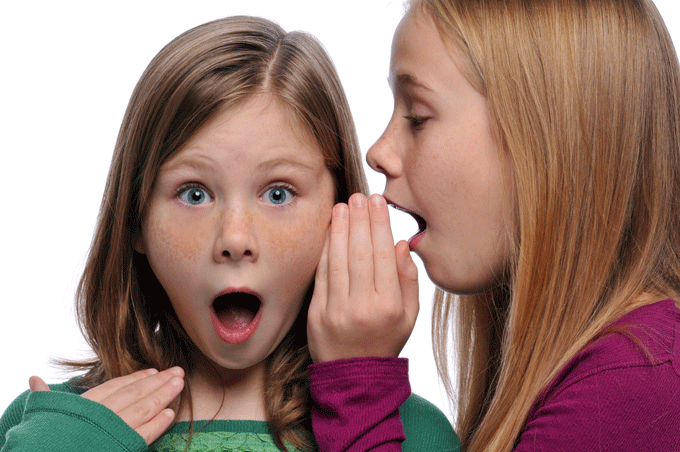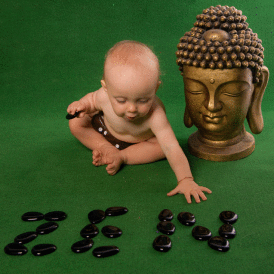One day during her second grade year, my daughter came home from school with her first big assignment: to write a report on an ancient Egyptian god. For my child’s subject, the teacher chose Nephthys, a goddess who had two crucial but vaguely similar jobs: to supervise the work of housewives, and to lead women into the underworld.
Nephthys was also famous for killing her husband, disguising herself as her sister, then getting her brother-in-law sloshed and seducing him into impregnating her. Nice role model, that Nephthys. She makes wearing a vile of blood around one’s neck or stepping out of a limo without panties look like the work of Mother Theresa. Anyway, can you imagine me trying to answer my second grader’s questions—“What’s getting drunk, Mommy?” or “Why did she kill him?” —as she read the “goddess bio” supplied by her teacher. There’s only so much you can water down explanations of murder, identity fraud and date rape.
The salaciousness of the school project had me wondering whether kids nowadays were too exposed to gritty ideas, or rather too sheltered from them. On one hand, children now have not only television, but video games and the internet to thank for thrusting unprecedented amounts of sex and violence on them. On the other hand, some parents—especially the well-intentioned, overeducated crowd here in San Francisco—take great pains to hide some of life’s more colorful realities from their innocent offspring for as long as possible, so much so that some kids I know don’t utter their first curse word until age 10, or watch a PG movie until well into middle school.
Everyone here researches films on Commonsensemedia.org before letting their kids watch anything—after all, we wouldn’t want Bobby to witness an open-mouth kiss before he was good and ready—and moms gossip about any kid who drops the F-bomb (or the S-bomb, or even the B-bomb) in the classroom, as if Junior should go straight to juvie, without passing Go and collecting 200 buckaroos. You see, we think we’re being so conscientious in order to keep our children pure. But our dirty little secret is that we just don’t want our kid to be the one to learn the stuff first, and then—horror of all horrors—to become the messenger, spreading the news through the halls of school like a sex-crazed Paul Revere.
A girl named Binky was that girl in my second grade class. One afternoon she pulled me behind one of the shelves in the school library and proceeded to tell me, in great detail, what sex was and how it was performed. Of course having no previous idea that boys were capable of such menacing acts, I ran out of the library with my mouthed gaped open and headed straight to the nurse’s office, my stomach churning with disgust. But my point is that this girl became known as the kid who told every other kid how babies were made. She was The Informant. And believe me, no one wants their kid to be The Informant, no matter how high her IQ and how precocious her social skills.
No one wants their kid to be the Informant. To be the one spreading the news through the halls of school like a sex-crazed Paul Revere.
Some parents make an effort to get to their kids before The Informant has a chance to strike. And according to child psychologists, it’s better for children to hear it straight from their parents, rather than on the street.
One of our friends, when asked by his persistent daughter how babies were made (“No, Dad, I mean, how exactly does the sperm get into the woman’s vagina?”) finally gave in and told her. After his explanation, she just stared at him for a minute and then finally said, “You did WHAT to Mommy?!”…and you did it TWICE?” Luckily for my friend and his wife, their daughter forgot the whole conversation by the following morning (perhaps she wasn’t emotionally ready for the truth), and she didn’t ask again for a while.
Laura Berman, a popular sexologist who has appeared on Oprah, claims second grade is precisely the time you should start talking to your kids about the birds and the bees—and no, she’s not referring to Big Bird and the bumblebee-extinction crisis. She offers a no-nonsense, age-appropriate approach, complete with explicit anatomy charts and an emphasis on self esteem. (You can download Dr. Berman’s Sex Ed Handbook right here.) One of her more controversial recommendations is that mothers should teach their teenage daughters about masturbation as an alternative to sex and as a form of female empowerment. When she suggested this idea on Oprah, audience members, including Oprah’s BFF Gail King, went into a tizzy. Were they being prudish? Perhaps. But who could blame them, really. I mean, can you imagine listening to your mother explaining to you how to masturbate? Yuck, yuck, yuck. (Did I mention: Yuck.)
At this point, I’m not sure where I stand on the whole thing. I’d like my daughter, when the time comes, to know that she doesn’t need to get into bed with a guy in order to, ahem, fulfill certain urges. I’m just not sure I’ll be willing to be The Informant. We’ll see. But it is worth considering that if Nephthys had taken the time to pleasure herself, perhaps her husband would have lived long enough to learn a thing or two about women.





















